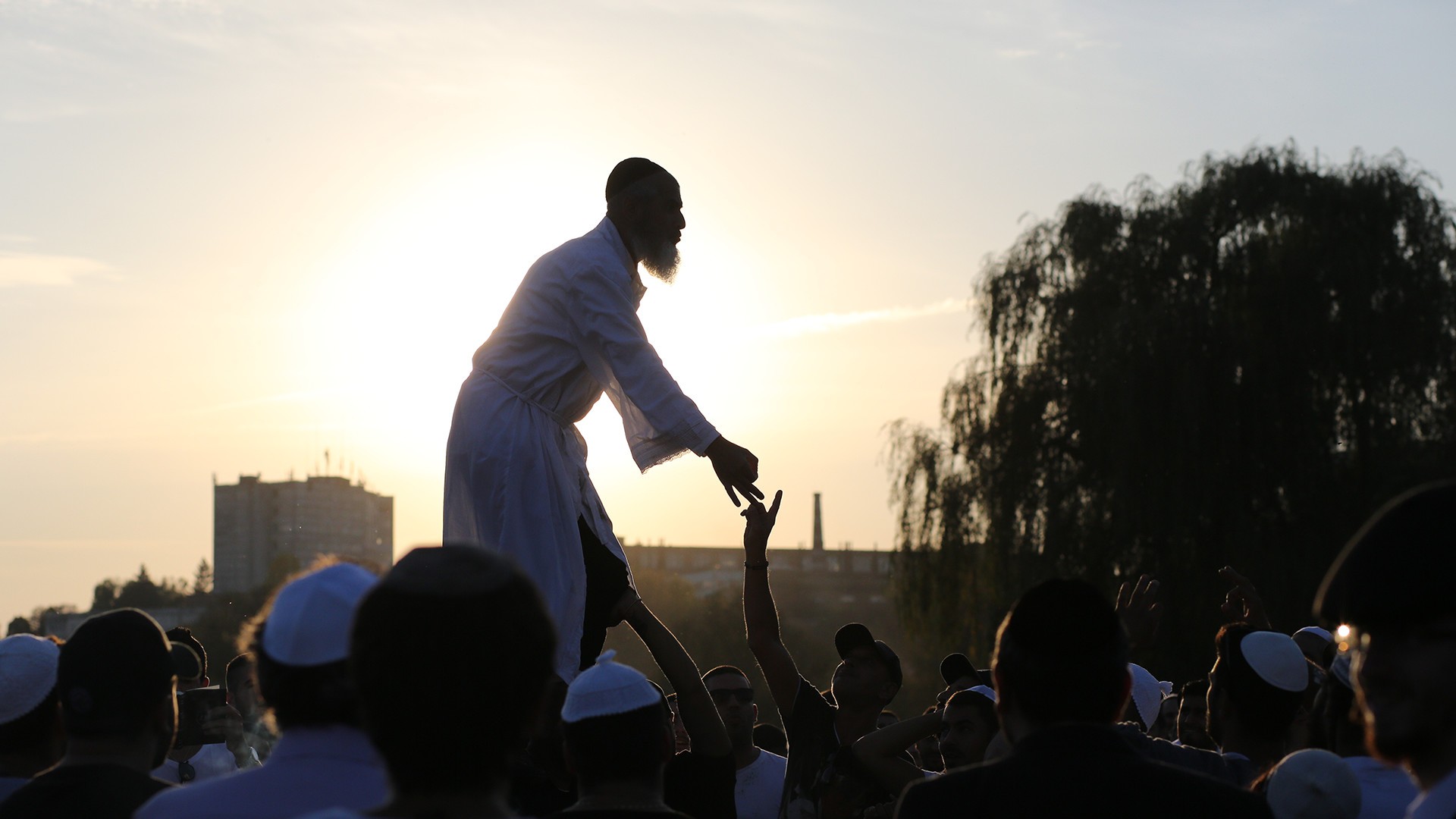A Hasid who had been DJing on the eve of the New Year has traded his turntable for a ram's horn, which he blows at the water's edge on the second day of the holiday. Photos by Alexander Chekmenev
A pilgrim, surrounded by trash, prays on a side street off Pushkin. During the holiday, the city overflows with filth.

A pilgrim snoozes outside a dining hall on Pushkin Street. Many visitors stay up all night praying, dancing, singing, and sometimes drinking. They sleep where they can.
Chezi from Atlanta, who grew up secular and whose wife divorced him because he used to wake up on purpose in the middle of the night to study scripture.
Yaakov Lehman, who tried Sufism, Daoism, and the Hare Krishna movement, among others, before settling on Breslov Hasidism.
Jews of all backgrounds—from born-into-it Breslov Hasidim to reformed acid droppers and erstwhile lost souls—eat challah and grilled meat at "Yoni's place," a guesthouse where about 35 pilgrims stayed during their trip.
Serhiy Alekseev, a city deputy, has developed a reputation as being tough on the Hasidim who come to Uman.
The idea to build a giant cross on a hill overlooking a site of Jewish pilgrimage came to Valeriy Kislinski, pictured here, in a dream.
Alekseev touches the controversial cross.